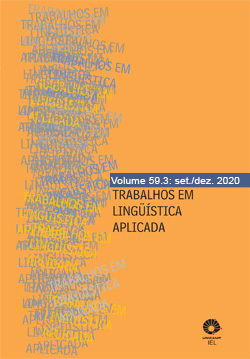Abstract
One of the greatest challenges of our times is that of lack of voice for abused bodies. These are the bodies of children and men and women who have inherited the brutalities of colonialism, plantation servitude and slavery and now re-live these miseries in the belly of a rampant global neoliberal and patriarchal capitalism. They are the racialized, sexualized, genderized and godless bodies that first took form in coloniality-modernity in conjunction with the emergence of MAN, the White, rational, disembodied male as HUMAN. They retain their shape today through technologies of vulnerability, with which the manufactured lack of voice works in dynamic synergy. This is particularly the case for South Africa, with its tender histories and distraught presents, raw emotion and sore vulnerabilities of racialized and neoliberal patriarchy. In this paper, we suggest that vulnerability, beyond its potentially devastating effect on souls and livelihoods, may also be a productive site for the articulation of alternative, and habitually silenced voices. In this regard, we explore how a focus on acts of Linguistic Citizenship may orientate thinking on voice and agency to different sites of the body, as well as allow insight into the complex technologies and practices of vulnerability.
References
ARENDT, H. (1998). The Human Condition. Chicago: University of Chicago Press.
BOCK, Z.; STROUD, C. (2018). Zombi landscapes: representations of apartheid in the discourses of young South Africans. In A. Peck, Q. Williams and C. Stroud (eds) People in Place: Making Sense of Linguistic Landscapes. London: Bloomsbury.
BROOKS, A. (2020). Fugitive listenings: Sounds from the Undercommons. Theory, Culture and Society, v. 37, n. 6, p. 25-45.
BROWN, W. (1995). States of Injury: Power and Freedom in Late Modernity. Princeton: Princeton University Press.
BUTLER, J. (2004). Precarious Life: The Powers of Mourning and Violence. London: Verso Press.
BUTLER, J. (2010). Frames of War: When is Life Grievable? London: Verso.
DIPROSE, R. (2013). Corporeal Interdependence: From Vulnerability to Dwelling in Ethical Community SubStance, v. 42, n. 3, p. 185-204.
FANON, F. (1952 [2008]). Black Skin, White Masks. New York: Grove Press.
GORDON, L. (2015). What Fanon Said: a philosophical introduction to his life and thought. Fordham University Press.
GQOLA, P. (2015). Rape: a South African nightmare. Johannesburg: Jacana Media.
HARNEY, S.; MOTEN, F. (2013). The Undercommons: Fugitive Planning and Black Study. 1-165. Research Collection Lee Kong Chian School of Business. Available at: https://ink.library.smu.edu.sg/lkcsb_research/5025
KULICK, D.; RYDSTROM, J. (2015). Loneliness and its opposite: sex, disability, and the ethics of engagement. Durham and London: Duke University Press.
MBANGENI, L. (2016). ‘Don’t mock breasts that saved us from rubber bullets’. Independent Online (IOL).
MFECANE, S. (2016). “Ndiyindodoa” [I am a man]: theorising Xhosa masculinity. Anthropology Southern Africa, v. 39, n. 3, p. 204-214.
MILANI, T. (2018). Is the rectum a goldmine? Queer theory, consumer masculinities, and capital pleasures. BAKER, P.; BALIRANO, G. (eds). Queering Masculinities in Language and Culture. pp. 19-42. Basingstoke: Palgrave and Macmillan.
NDLOVU, M. W. (2018). #FeesMustFall and Youth Mobilisation in South Africa: Reform or Resolution? London: Routledge.
PETHERBRIDGE, D. (2016). What’s Critical about Vulnerability? Rethinking interdependence, recognition and power. Hypatia, v. 31, n. 3, p. 589-605.
SABSAY, L. (2016). ‘Permeable bodies’: Vulnerability, affective powers, hegemony. In BUTLER, J.; GAMBETTI, Z.; SABSAY, L. (eds.). Vulnerability in resistance. Duke University Press.
SANTOS, B. (2018). The End of Cognitive Empire: the coming age of epistemologies of the South. Durham and London: Duke University Press.
STROUD, C. (2001). African mother-tongue programmes and the politics of language: Linguistic citizenship versus linguistic human rights. Journal of Multilingual and Multicultural Development, v. 22, p. 4, p. 339–355.
STROUD, C. (2018). Linguistic Citizenship. In LIM, L.; STROUD, C.; WEE, Lionel (eds). The Multilingual Citizen. Towards a Politics of Language for Agency and Change. pp. 17-39. Bristol: Multilingual Matters.
STROUD, C.; Williams, Q. E. (2017). Multilingualism as Utopia: Fashioning Non-Racial Selves. AILA Review, v. 30, p. 165-186.
TAYLOR, J. (2005). Surfacing the body interior. Annual Review of Anthropology, v. 14, p. 741-56.
TROUILLOT, M. (2003). Global Transformations: Anthropology and the modern world. Palgrave Macmillan: New York.
VERONELLI, G. (2015). The Coloniality of Language: Race, Expressivity, Power, and the Darker Side of Modernity. Waguda, v. 13, p. 108-134.
VERONELLI, G. (2016). A Coalitional Approach to Theorizing Decolonial Communication. Hypatia, v. 31, n. 2, p. 401-520.
WEHELIYE, A. (2014). Habeas Viscus: Racializing Assemblages, Biopolitics and Black Feminist Theories of the Human. Durham, NC: Duke University Press.
WHITTLES, G. (2016). How brute force yielded to naked resistance. Mail & Guardian.
WILLIAMS, Q. (2016). Youth Multilingualism in South Africa’s Hip-Hop Culture: a metapragmatic analysis. Sociolinguistic Studies, v. 10, n. 1, p. 109-133.
WILLIAMS, Q.; STROUD, C. (2017). Linguistic Citizenship: language and politics in postnational modernities. In Milani, T. Language and Citizenship: Broadening the agenda pp. 89-112. Amsterdam: Johns Benjamins Publishing Company.
WYNTER, S. (2003). Unsettling the Coloniality of Being/Power/Truth/Freedom: Toward the Human after Man, its Overrepresentation – An Argument. CR: The New Centennial Review, v. 3, n. 3, p. 257-337.
ZIAREK, E. P. (2013). Feminist Reflections on Vulnerability: Disrespect, Obligation, Action. SubStance, v. 42, n. 3, p. 67-84.

This work is licensed under a Creative Commons Attribution 4.0 International License.
Copyright (c) 2021 Trabalhos em Linguística Aplicada


